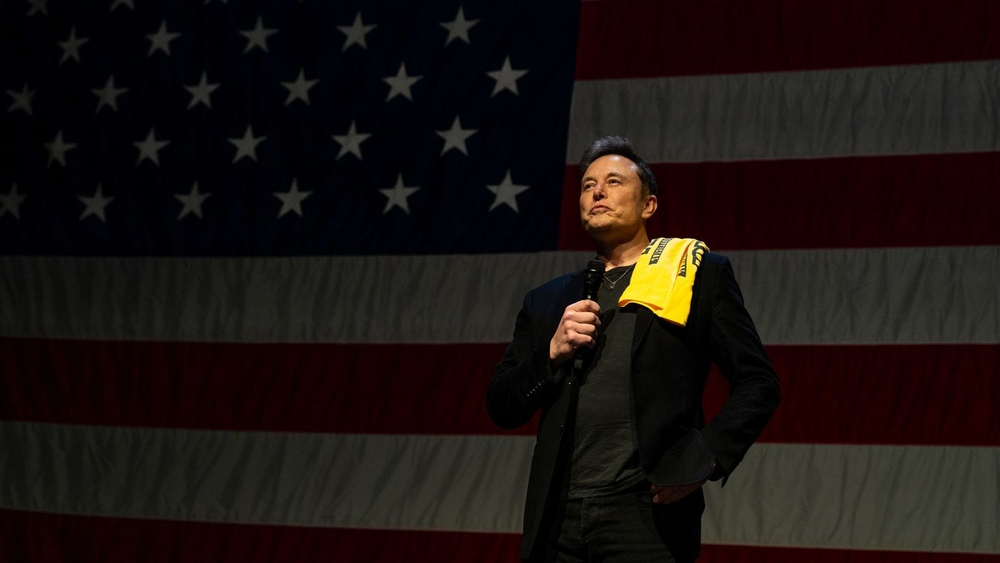Published
- 3 min read
Is Elon Musk Creating a New Metternich System with Right-Wing Alliances?

A New Age of Global Realignment?
In the rapidly evolving landscape of international relations, the concept of a global order shaped by ideological alliances is making a comeback. Speculation is growing that Elon Musk, the enigmatic entrepreneur and owner of X (formerly Twitter), may be engineering a modern version of the Metternich System by aligning right-wing governments across the world. While this theory may seem far-fetched, several pieces of evidence point to Musk’s increasing influence on global politics, particularly among leaders with nationalist or conservative agendas.
Musk’s Growing Political Clout
Musk’s ownership of X has given him an unprecedented platform to shape public discourse and engage directly with political leaders. Unlike traditional media moguls, Musk actively participates in discussions, often promoting free speech absolutism, anti-woke rhetoric, and narratives that resonate with right-wing ideologies. His interactions with leaders like Hungary’s Viktor Orbán, Italy’s Giorgia Meloni, and figures like U.S. President-elect Donald Trump signal his alignment with their governance styles.
Moreover, Musk’s ventures in space exploration (SpaceX), artificial intelligence (xAI), and electric vehicles (Tesla) position him as a tech visionary with the capability to influence not just economies but also geopolitical strategies. His Starlink satellite network has already played a critical role in Ukraine’s defense, showcasing how private technology can intersect with international diplomacy.
Evidence of Right-Wing Alignment
Engagement with Nationalist Leaders
Musk’s meetings and online engagements with leaders of nationalist governments raise eyebrows. For example, his public support for Orban’s stance on family values and traditionalism echoes themes prevalent in right-wing circles. Similarly, Musk’s recent comments on immigration and border security align closely with the policies of leaders like Meloni and Trump.
Promotion of Ideological Narratives on X
Under Musk’s leadership, X has become a hub for right-wing voices, amplifying narratives that challenge liberal internationalism. The platform’s algorithmic changes appear to prioritize content critical of globalist policies, immigration, and climate activism—common grievances of nationalist governments.
Strategic Investments in Key Geographies
Musk’s business moves also align with the interests of conservative governments. Starlink’s expansion in India, a country led by Narendra Modi’s right-leaning administration, demonstrates his willingness to partner with regimes that prioritize economic nationalism. Similarly, SpaceX’s ambitions to partner with Gulf states, known for their authoritarian governance, further cement this alignment.
The Geopolitical Implications
A Fragmented Global Order
If Musk is indeed orchestrating a network of right-wing alliances, it could further fragment the already tenuous liberal world order. This system could counterbalance the influence of organizations like the United Nations or the European Union, which are often criticized by nationalist leaders for their perceived overreach.
Rise of Ideological Tech Sovereignty
Musk’s involvement also highlights the growing intersection between technology and geopolitics. By leveraging platforms like X and infrastructure like Starlink, Musk could facilitate a form of ideological tech sovereignty for aligned nations, allowing them to bypass traditional diplomatic channels and engage directly with their populations or allies.
Risks of Polarization
However, this alignment also risks deepening ideological polarization, not just within countries but globally. A Musk-backed Metternich System could exacerbate divisions between right-wing and left-wing governments, complicating efforts to address transnational issues like climate change, pandemics, and cyber threats.
A Modern Metternich or a Disruptive Force?
The comparison to the Metternich System—a 19th-century diplomatic framework aimed at maintaining European stability through conservative alliances—may seem apt but is not without caveats. Unlike Prince Metternich, Musk is not a statesman but a businessman with ideological leanings and a penchant for disruption. Whether his actions are deliberate or a byproduct of personal convictions remains to be seen.
What is clear, however, is that Musk’s influence in aligning nationalist leaders and fostering a counter-narrative to liberal internationalism is reshaping the geopolitical landscape. As governments grapple with this new reality, the world may be on the cusp of a power realignment not seen since the Cold War.
Conclusion
Elon Musk’s role in global politics is becoming harder to ignore. Whether he is consciously orchestrating a new Metternich System or simply acting on his personal beliefs, his impact on the alignment of right-wing governments is undeniable. The long-term consequences of this development could redefine the contours of international relations, raising questions about the sustainability of a fragmented world order in an era of unprecedented challenges.
